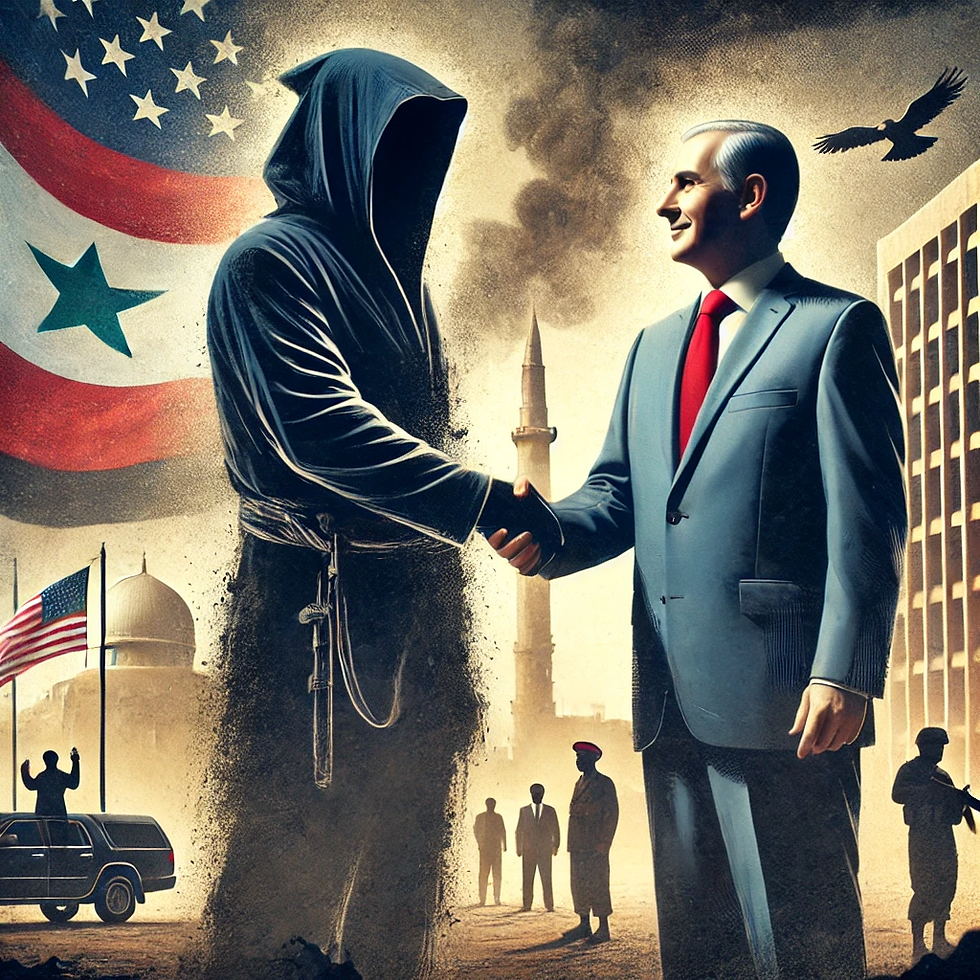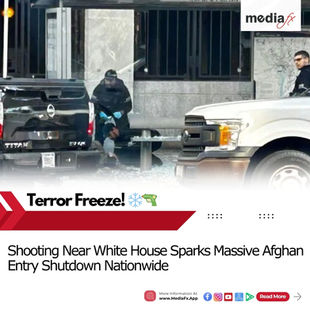From Terrorist to President: The Curious Case of Ahmad Al-Shara’a in Syria
- MediaFx

- Feb 6
- 3 min read
TL;DR: Ahmad Al-Shara’a, once linked to Al-Qaeda, has become Syria's transitional president after the fall of Bashar al-Assad. The U.S. swiftly removed him from its terrorist list, raising concerns about its role in shaping foreign governments and the potential consequences of such interventions.

In a surprising turn of events, Ahmad Al-Shara’a, formerly known as Abu Mohammad al-Julani and associated with Al-Qaeda, has risen to the position of Syria's transitional president following the ousting of Bashar al-Assad. This development has sparked discussions about the U.S.'s involvement in foreign affairs and its history of supporting certain groups to achieve its geopolitical goals.
A Quick Rise to Power
After the overthrow of former President Bashar al-Assad on December 8, 2024, Al-Shara’a was appointed as Syria's president for the transitional period. He was previously the leader of Hay’at Tahrir al-Sham (HTS), a group with roots in Al-Qaeda. Following his appointment, significant changes were announced, including the repeal of the 2012 constitution and the dissolution of the army, security agencies, parliament, and the Baath Party. All armed factions, including HTS, were also officially disbanded.
U.S. Involvement and Rapid Policy Shifts
Notably, the United States swiftly removed Al-Shara’a from its terrorist list and lifted a $10 million reward for his arrest on December 20, 2024. This action facilitated his international engagements, including meetings with key U.S. allies in the region. For instance, during his visit to Saudi Arabia, Al-Shara’a met with Crown Prince Mohammad Bin Salman, who expressed a genuine desire to support Syria in building its future.
Historical Context of U.S. Interventions
The U.S. has a long history of intervening in foreign nations, often justifying actions as necessary for promoting democracy or protecting strategic interests. However, these interventions have sometimes led to unintended consequences, including the rise of authoritarian regimes and prolonged conflicts.
The Case of Guatemala
In 1954, the CIA orchestrated a coup in Guatemala, overthrowing the democratically elected President Jacobo Árbenz. This intervention was driven by concerns over Árbenz's agrarian reform program, which threatened the interests of the United Fruit Company, a U.S. corporation. The coup led to decades of civil war and human rights abuses in Guatemala.
The Iran 1953 Coup
Similarly, in 1953, the U.S. and the UK orchestrated a coup in Iran, overthrowing Prime Minister Mohammad Mossadegh after he nationalized the oil industry. This led to the reinstatement of the Shah, whose authoritarian rule eventually sparked the 1979 Iranian Revolution.
Consequences of Supporting Questionable Allies
The U.S.'s decision to support groups or individuals with questionable backgrounds has often backfired. In Afghanistan during the 1980s, the U.S. provided support to mujahideen fighters against Soviet forces. Some of these fighters later formed extremist groups, including the Taliban and Al-Qaeda, leading to prolonged conflicts and terrorism that have had global repercussions.
A Call for Reflective Foreign Policy
The elevation of Ahmad Al-Shara’a to Syria's presidency, with the apparent endorsement of the U.S., raises questions about the criteria used to select allies and the potential long-term consequences of such choices. While strategic interests often drive foreign policy decisions, it's crucial to consider the ethical implications and the potential for unintended outcomes.
MediaFx Opinion
From a working-class, socialist perspective, it's evident that U.S. interventions often prioritize corporate and strategic interests over the genuine needs and aspirations of the local populations. These actions can undermine sovereignty and lead to instability, disproportionately affecting the working class and marginalized communities. A more equitable approach would involve respecting the self-determination of nations and supporting grassroots movements that aim for social justice and equality.













































